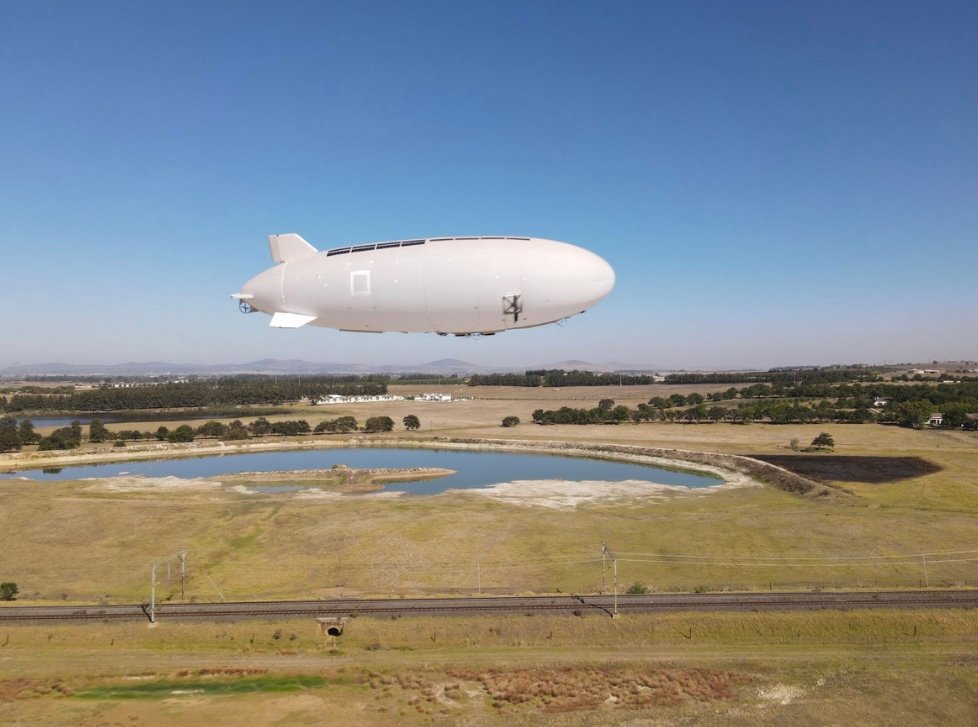South African aerospace startup Cloudline receives $6 million in funding to pave the way for carbon emissions-free autonomous flights. Schmidt Futures, founded by former Google CEO Eric Schmidt and Wendy Schmidt, is one of the investors in the seed round. Other backers include pan-African funds such as the Raba Partnership, Verod-Kepple Africa Ventures, 4Di, and other venture firms.
Six years ago, Cloudline founder and CEO Spencer Horne set out to create a transportation system connecting isolated communities to the global supply chain. This bold vision involved using lighter-than-air uncrewed aerial vehicles to deliver large payloads. Horne’s passion for transportation technology, especially aviation, stems from his childhood fascination with trains and his upbringing near a railway crossing in South Africa. Despite facing challenges while pursuing aeronautical studies in the United States, Horne, a Harvard alumnus, returned to the continent to contribute to the field.
Horne spent two years at McKinsey to build his professional network, which provided him with valuable travel experiences and insights into the diverse challenges facing African communities. His work in East Africa, particularly in Kenya and Uganda, shed light on the significant impact of infrastructure on people’s lives.
In 2016, the first drone delivery services targeting rural African consumers made their debut. This groundbreaking moment saw Zipline initiating drone deliveries in Rwanda, while Matternet tested their drones in Lesotho. The following year, Horne founded Cloudline at the intersection of technology, transportation, and its impact on community outcomes.
In an interview with TechCrunch, Horne shared his thoughts on why drone operators at the time were solely focused on small single-dose deliveries or medical payloads. He believed there was an opportunity for drones to transport items that could create significant economic opportunities for Africans while bypassing traditional infrastructure limitations. However, he quickly realized the limitations of traditional drones, and he turned towards airships as a potential solution.
“I realized that the tech doesn’t scale linearly in complexity with its size. If you want to make a bigger drone, sooner or later, you end up with an airplane or helicopter again, with all the associated costs and complexities.” – Spencer Horne
This realization led Horne and his team to invest a considerable amount of time in developing flight hardware specifically designed for airships. It wasn’t until three years ago that they came up with a minimally viable product (MVP). Today, the startup, with over 25 employees per LinkedIn, has a strong understanding of the opportunities in the autonomous flight sector.
Along the way, the team found interest and resonance with partners intrigued by aerial monitoring, a space initially dismissed by Horne due to advancements in satellite and handheld DJI drone technology. As a result, Cloudline has identified specific areas where its platform, offering long-distance real-time data and extended flight times for large regions, addresses critical needs. According to Horne, this realization has opened up a robust opportunity for the startup to expand its platform into these applications.
Cloudline has created carbon emissions-free autonomous airships that offer a cost-efficient alternative to drones, helicopters, and satellites. It brings real-time data capture capabilities to the most remote and expensive-to-serve locations. The key strengths of these airships lie in their range, endurance, and efficiency.
- Range: The startup’s airships can cover over 400 km (250 miles) with a fully loaded payload of 40 kg (90 lbs).
- Endurance: The airships can operate for 10 hours, making them ideal for various applications, including mapping, monitoring, and public safety.
- Efficiency: These carbon emissions-free airships are powered by helium gas for lift and sustained on solar power, with a battery backup. This results in zero emissions and significantly reduced operating costs.
These features give Cloudline a competitive advantage over alternative crafts, allowing partners to increase range without the need for larger aircraft or incurring higher unit operating costs. Moreover, it addresses monitoring challenges that were difficult to solve before.
“So it’s quite a breakthrough in that sense. The way we think about this now, just as a technology, is that this platform play can be game-changing in several ways. For instance, reaching areas that are typically either harder to reach or become incredibly expensive to serve.” – Spencer Horne
Horne also highlights that Cloudline’s most robust intellectual property lies in integrating software with hardware, particularly in creating autonomy for the airships. He argues that replicating this process, which is time-intensive, is a significant challenge for any potential competitor, even with substantial financial resources. Additionally, he believes that a drone company’s success or failure is not solely dependent on the functionality of their drones, but on their ability to generate value for customers through a viable business model.
Cloudline’s approach to this challenge is evident in its beachhead strategy. The startup plans to develop solutions in Africa, primarily targeting the continent as its initial customer base. This approach also serves as a launchpad for Cloudline to enter global markets. It’s a logical move, especially when it comes to regulatory interactions, as the startup has received positive responses from regulators, despite the innovative nature of its work.
The aerospace startup, which launched its commercial operations in South Africa, has completed the necessary regulatory approvals process. It is now actively working on expanding into neighboring countries, Namibia and Mozambique, before tackling global markets. Earlier this year, Cloudline conducted proving flights for Kenyan authorities, making it the first airship to fly in East Africa. Horne says that the startup has seen a four-fold increase in revenue in 2023 and is projecting substantial growth for 2024, propelled by several new multi-million dollar enterprise contracts.
George Rzepecki, founder and CEO of Raba Partnership, expressed his excitement about investing in Horne, who has assembled some of the world’s top engineering and product talent, making Cloudline a category-leading company in the autonomous aerial infrastructure space.
In conclusion, Cloudline is making significant strides in the autonomous flight sector. It has a strong position in the market thanks to its first-mover advantage, particularly when it comes to hardware integration. With its unique approach and focus on African markets, the startup is poised for even more success in the years to come.








